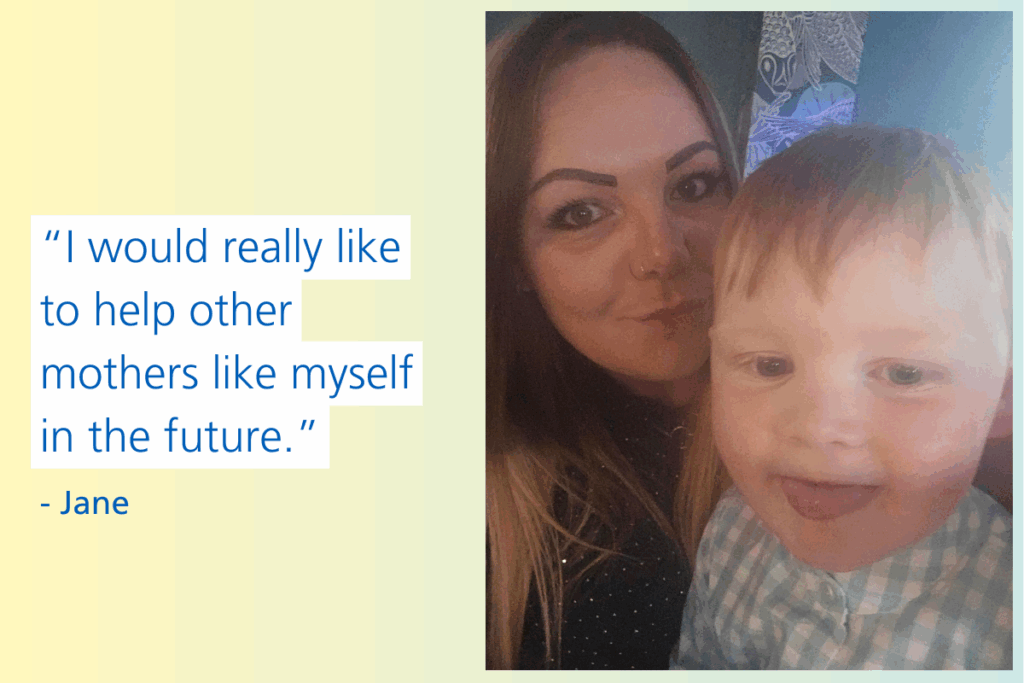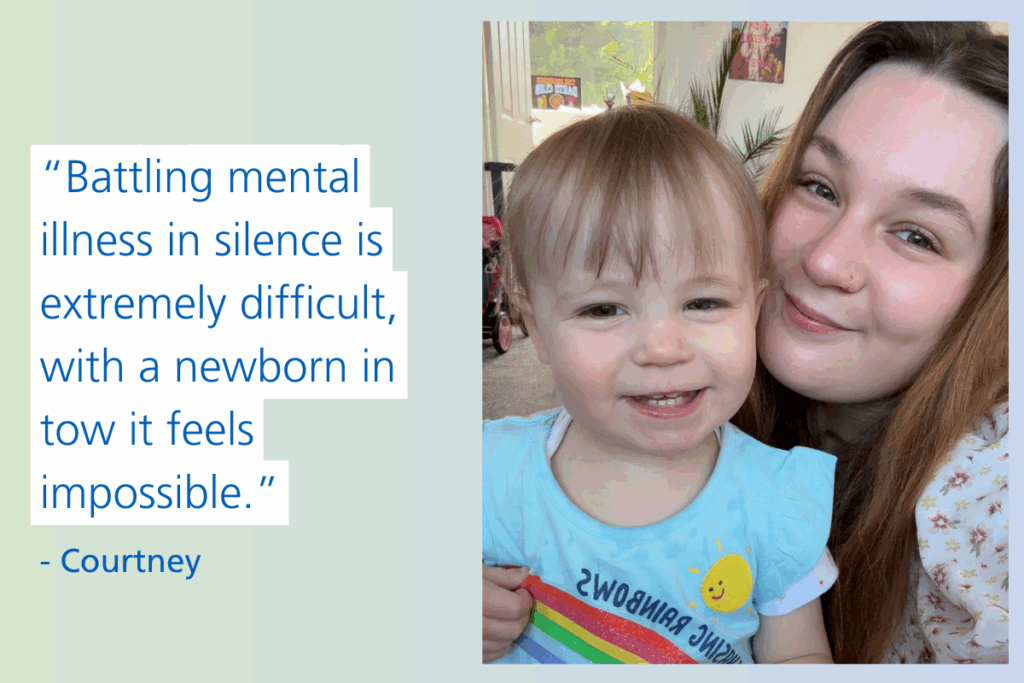Tuesday 1 July 2025
Jane and Courtney received mental health support during their pregnancies and following the birth of their children.
This article includes advice and insights from their lived experience.

It’s important to talk
“Talking saves lives,” says Courtney, who was referred into Durham and Darlington Perinatal Mental Health Service during her pregnancy, having previously had support from our Trust.
She has continued to work with the team following discharge from a mother and baby unit. She says: “Battling mental illness in silence is extremely difficult, with a newborn in tow it feels impossible. Talking is the way to get the help you need.”
Jane also experienced recovery, through working with the specialist perinatal mental health service. She was asked at a midwife appointment if she would like to be under perinatal mental health during her pregnancy, due to having received mental health care previously. She says: “I didn’t really know what it entailed but I am eternally grateful that I chose to be under perinatal.”
Don’t listen to people who say “just you wait”
The women describe how the reality of parenthood can be different from what you may expect.
One of the tips Courtney gives is: “not to not listen to all the just you wait moments, as ultimately, everyone’s experience during the perinatal period is different.”
The two explore this experience in a poem they wrote to raise awareness.
You can listen to the poem below.
Together, after speaking about their experiences and struggles, Courtney and Jane wrote the poem to highlight the emotional impact becoming a parent can have.
The pair hope the poem can raise awareness and understanding.
Ask for support
If you’re feeling anxious or depressed during pregnancy or after becoming a parent, the women recommend reaching out for support.
“Not being afraid to speak out and get the support you need is so brave,” says Courtney.
“When you’re unwell it’s a really scary place but having the correct support network in place is crucial. Family, friends and mental health nurses know the real well you. So, when you become unwell – like I did – they know to get you the correct help, even if you don’t agree with it at the time,” says Jane.
Be honest, even though it can be scary
“I think my biggest tip,” says Courtney, “is to be honest no matter how scary that might be and to not be ashamed or afraid.”
Jane said: “People think the worst, however, with correct support you can be the most amazing mum.”

Help and recovery is possible, although it may not feel like it now
Courtney says: “This work matters as I’m keen to help other people by using my lived experience. To advocate for hope and recovery when it feels like that isn’t possible.”
Jane shared: “The work really makes me proud of myself, from being seriously unwell to potentially helping others gives me a sense of purpose. I would really like to help other mothers like myself in the future.”
Laura Wilkinson, Advanced Nurse Practitioner in the Durham and Darlington Perinatal Mental Health Service, says: “I’m really proud of Courtney and Jane. I feel so lucky to work with them again but in a different capacity.
“It’s so important that women are able to use their voice during the most difficult times. Our experts by experience, like Courtney and Jane, want to help support and encourage women to reach out in order to help reduce the stigma attached to being unwell in the perinatal period.
“We are planning some very exciting future training events for staff using our experts by experience to help reduce stigma so hopefully we can reach more women in need and get them the service they all deserve to receive.”
You can refer yourself to NHS Talking Therapies services
If the messages in this article resonate with you, mental wellbeing support is through NHS Talking Therapies services. Talk to your midwife, healthcare worker or GP about your mental health, or you can refer yourself to an NHS talking therapies service online.